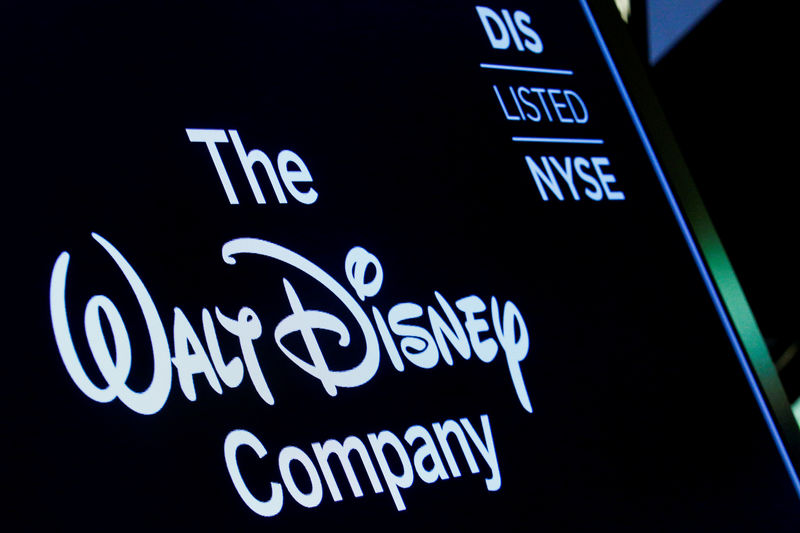|
|
| This week's gainers and losers |
| Tops: Nexstar Media Group (+18%): The American media company (which owns around 200 channels in the US) is in talks to buy the ABC network and its TV stations from the Disney giant. For the moment, no price has been set by either party, and Disney has made it clear that the deal is not yet certain. If the deal goes through, however, Nexstar will have to divest part of its assets to comply with the sector's competition laws. HelloFresh (+15%): The German meal delivery specialist surged this week on the back of a recommendation upgrade from JPMorgan. Following an investor meeting, the US bank placed the company on its "Analyst Focus List" of particularly interesting investment opportunities, praised the good momentum of the group's performance indicators, and raised its price target from €31 to €38. Among other things, it praised the increase in the number of customers, sales and margins. Tesla (+11%): Three news items boosted the electric vehicle manufacturer's share price this week. On the one hand, the European Commission has announced that it is launching an investigation into state aid granted by Beijing to its automakers, enabling them to charge particularly low prices on the European market. The investigation could lead to the imposition of punitive customs duties on all Chinese models. Tesla is also taking advantage of the labor unrest that is currently undermining its American competitors Ford and General Motors. Last but not least, Tesla is said to have developed a press technique for molding bodywork, enabling it to greatly accelerate vehicle production times. Flops: MTU Aero Engines (-16%) & RTX (-10%): Aeronautics in turmoil! RTX (formerly Raytheon Technologies), the parent company of engine manufacturer Pratt & Whitney, is forced to recall several hundred of its flagship GTF engines (which power the Airbus A320neo) due to defects that could accelerate turbine wear. As a result, the Group anticipates a drastic fall in profits and has lowered its free cash flow target. It will also have to pay heavy compensation to MTU Aero Engines, which owns 18% of the GTF program and is responsible for engine maintenance, dragging the latter down with it. The JM Smucker Company (-11%): The American food company announced this week that it was acquiring sweet snack manufacturer Hostess Brands for $5.6 billion. While JM smucker asserts that the Hostess acquisition will be accretive to sales, the market is questioning the merits of the deal, given the acquirer's track record of failed mergers and acquisitions. For its part, Hostess Brands gained nearly 19% over the week. Oracle (-10%): The U.S. software and database management systems company is disappointing. In particular, the Group reports a sharp slowdown in cloud sales growth, down 10% and below market expectations. The hardware division's quarterly revenues were also down 6%. Wall Street is also punishing the Group's timid outlook. On the good news front, we note the launch of Oracle Database@Azure, in partnership with Microsoft. Netflix (-10%): The streaming giant is a collateral victim of the reshuffling of the cards in the broadcasting sector (notably the agreement between Disney and Charter Communications). The broadcaster is also suffering from its CFO's statements on the outlook: he revealed his doubts about the profitability of the live sports segment, the maturity of the US streaming market, margin control and external growth ambitions. |
|
| Commodities |
| Energy: Oil prices continue to rise due to global supply constraints. The International Energy Agency's latest report once again highlights the risk of a significant market tightening due to low global inventories. OPEC also predicts a supply-demand deficit of approximately 3.3 million barrels per day by the end of the year. As a result, Brent is trading at around $93, while WTI is nearing $90, marking a 30% increase in just four months. On the other hand, natural gas faces challenges, with ongoing industrial actions in Australia impacting 5% of global LNG production. In Europe, maintenance work in Norway is further pressuring natural gas prices, which are currently at around EUR 38/MWh for the Dutch TTF. Metals: Copper, a key indicator of the global economy, experienced a rise this week, driven by positive economic data from China. This increase overshadowed the growth in LME inventories, resulting in copper trading at approximately USD 8400 per metric ton. In the broader ferrous metals sector, there has been an overall uptrend in the past five days. Despite a renewed surge in bond yields, gold closed the week on a high note. Central banks may have finished rate hikes, but high-interest rates are expected to persist, which is less favorable for gold, a non-yield-bearing asset. Currently, an ounce of gold is trading at around USD 1925. Agricultural products: Grain prices in Chicago remained relatively steady this week. The U.S. Department of Agriculture adjusted its corn production estimates upward due to increased acreage, compensating for lower yields. Corn prices settled at approximately 480 cents per bushel, while wheat stood at 610 cents. |
|
| Macroeconomics |
| Atmosphere: So far, things are on track. The ECB raised its key rates, but the most significant point was their assurance that this tenth hike would likely be the final one. Investors didn't expect much more and started envisioning the eagerly awaited shift. Meanwhile, the recent U.S. inflation numbers were largely as anticipated. In August, Core CPI stood at 4.3% year-on-year, down from 4.7% the previous month, and annual PPI matched expectations at 2.2%. Weekly jobless claims also aligned with forecasts, supporting the idea of a "soft landing" for the U.S. economy. If everything continues to go well, next week is set to be busy with consecutive meetings of the Fed, the Bank of England, and the Bank of Japan. In other words, investors will have their hands full. The ECB's apparent abandonment of a final rate hike in the near future has weighed on the euro, which is now at USD 1.0663. In the debt market, the increase in the US 10-year yield to 4.3% highlights lingering market concerns about inflation, especially given the sharp rise in oil prices. Lastly, it's worth noting that China's production and consumption figures for August exceeded expectations slightly. This may indicate that the various measures announced by Chinese authorities are starting to show positive results. Crypto: Bitcoin, after four weeks of consecutive declines, has regained attention by surging more than 2% since Monday and currently trades at approximately $26,400. In contrast, Ether, another cryptocurrency, is not performing as well, with a modest gain of +0.27% over the same period, and it remains around the $1620 range. Notably, trading volumes on major platforms like Coinbase and Binance have been steadily decreasing in recent weeks, indicating waning investor interest in cryptocurrencies. Unless substantial positive drivers emerge, digital currencies may face challenges in returning to their previous high levels. |
|
|
| Things to read this week | ||||||
|
|
*The weekly movements of indexes and stocks displayed on the dashboard are related to the period ranging from the open on Monday to the sending time of this newsletter on Friday. The weekly movements of commodities, precious metals and currencies displayed on the dashboard are related to a 7-day rolling period from Friday to Friday, until the sending time of this newsletter. These assets continue to quote on weekends. |

 By
By 





































